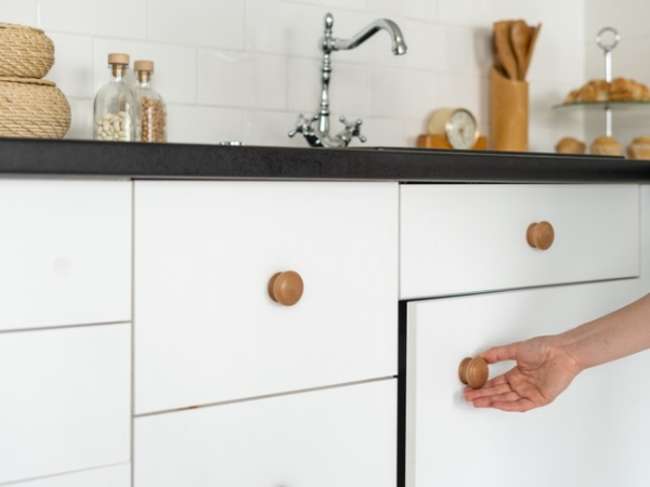We may earn revenue from the products available on this page and participate in affiliate programs. Learn More ›
Make Your Space Safe
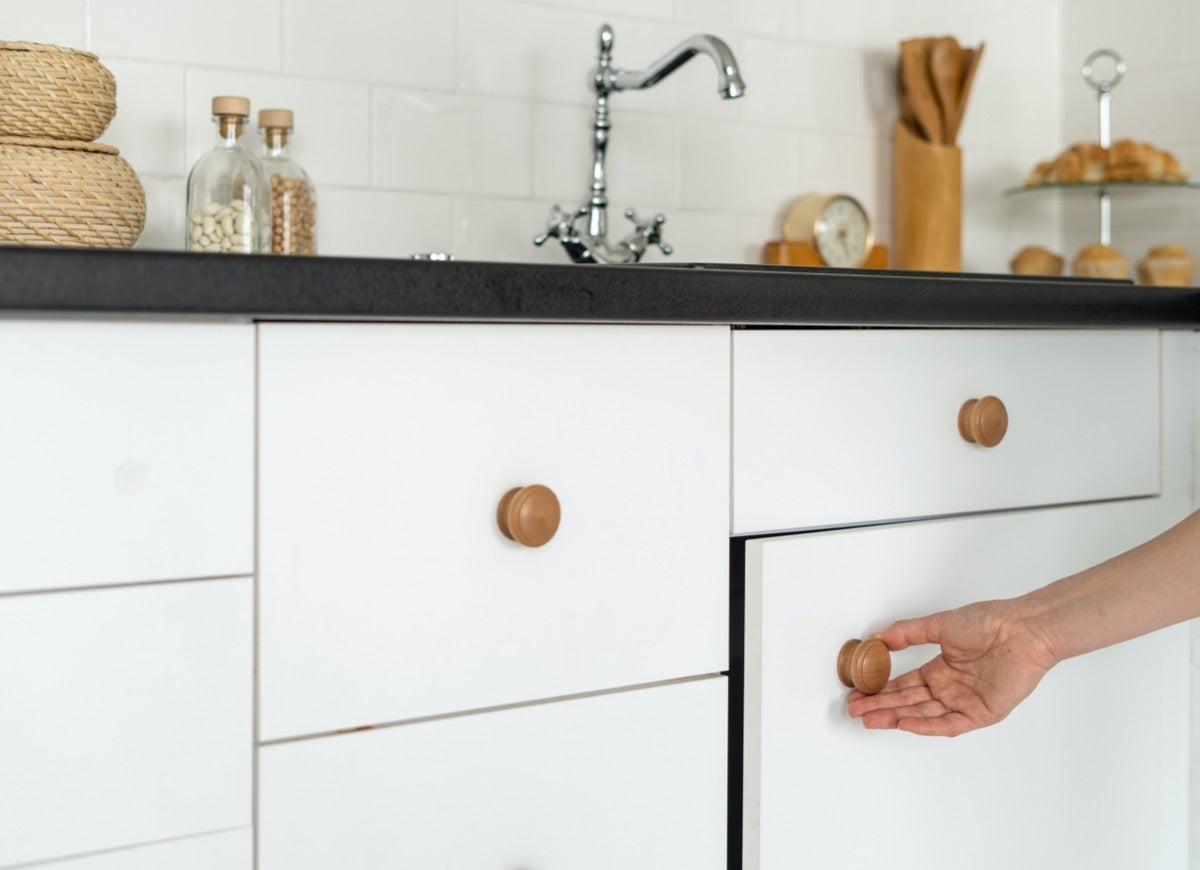
Those with small kitchens know that the area underneath the sink is a valuable bit of real estate. It’s a great place for storing dish towels, extra sponges, trash bags, and a small fire extinguisher in case of emergencies. There are a number of everyday household items, however, that should never be kept in this area because they may incur damage—and could even be dangerous to you and your family members.
Paper Towels
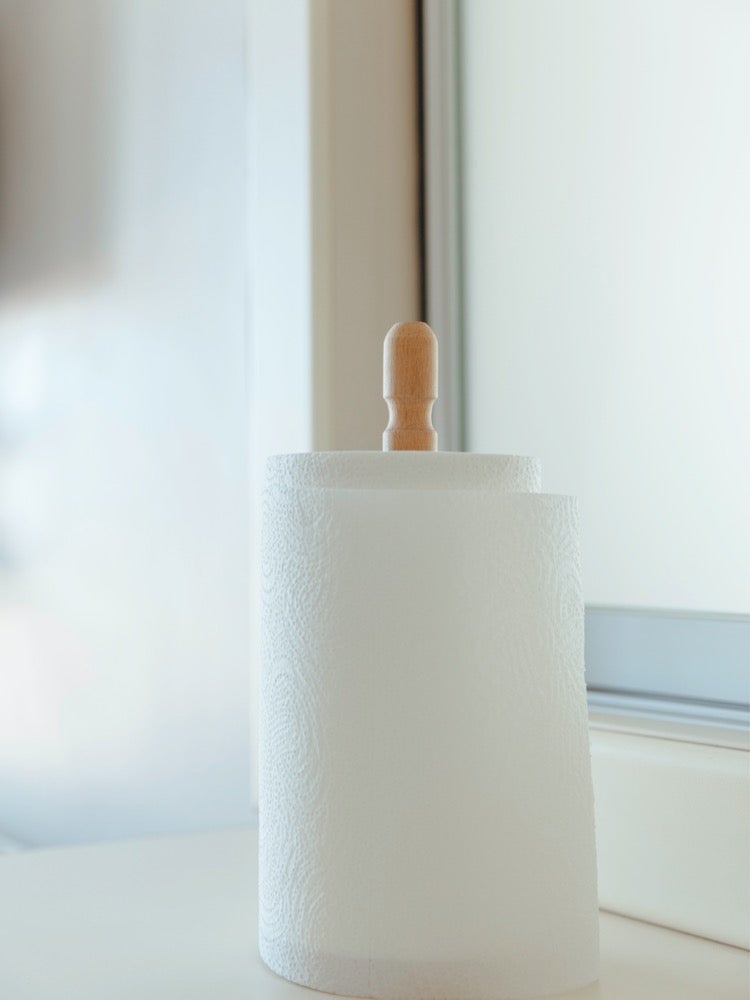
Because this spot houses the plumbing pipes for your sink, it’s prone to getting damp. That’s why paper towels would fare better in a separate cabinet where they aren’t at risk of becoming moist, and therefore less effective. This rule applies to any other paper products as well. Trash or compost bags made from paper are designed to biodegrade quickly, which makes them extra susceptible to being damaged by moisture.
Small Appliances
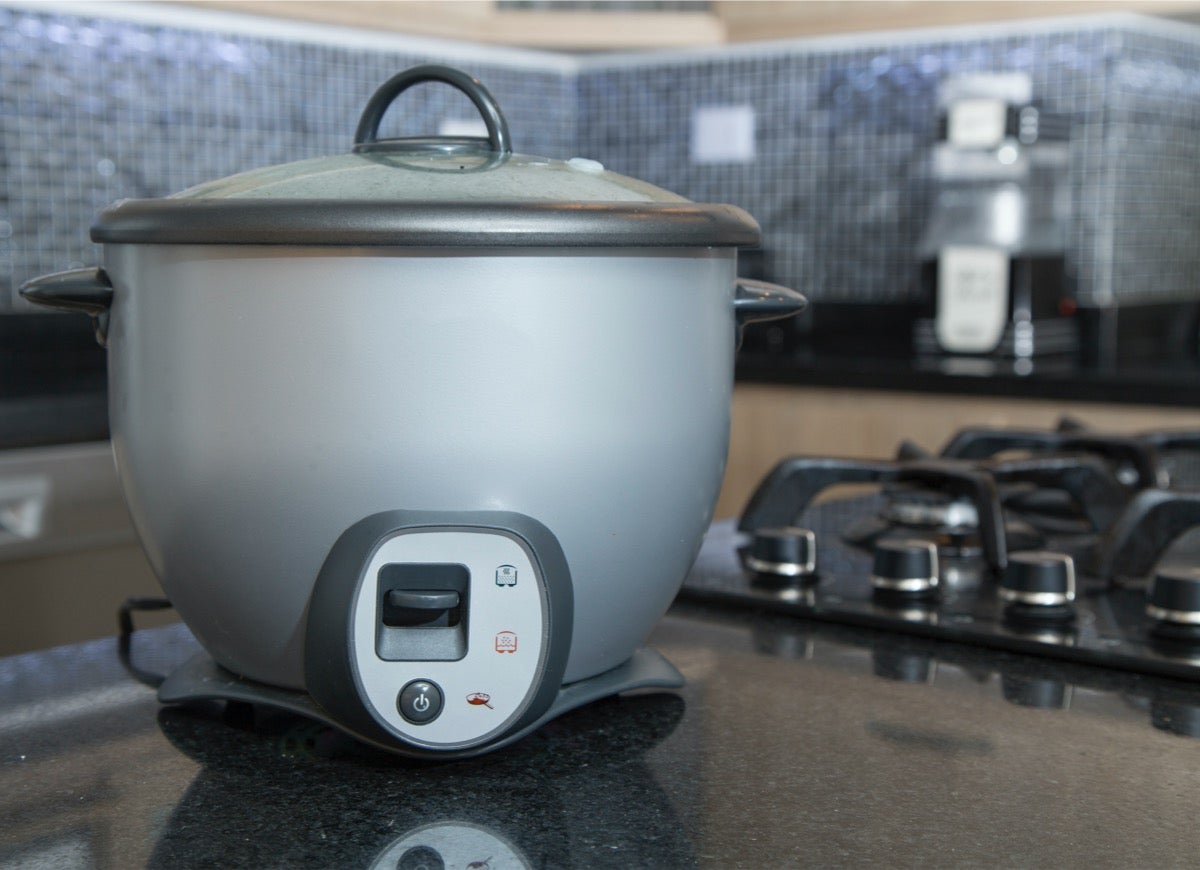
If you’re really short on storage space, it can be tempting to tuck that rarely used slow cooker or bread maker into the back of the cabinet under the sink. Electronics and water, however, do not mix, so it’s better to store small appliances in another area. The area at the back of your kitchen’s corner cabinet is a good choice because it’s tricky to access, making it perfect for storing items you only need once in a blue moon.
Related: The Best Kitchen Appliance Brands
Harsh Chemicals
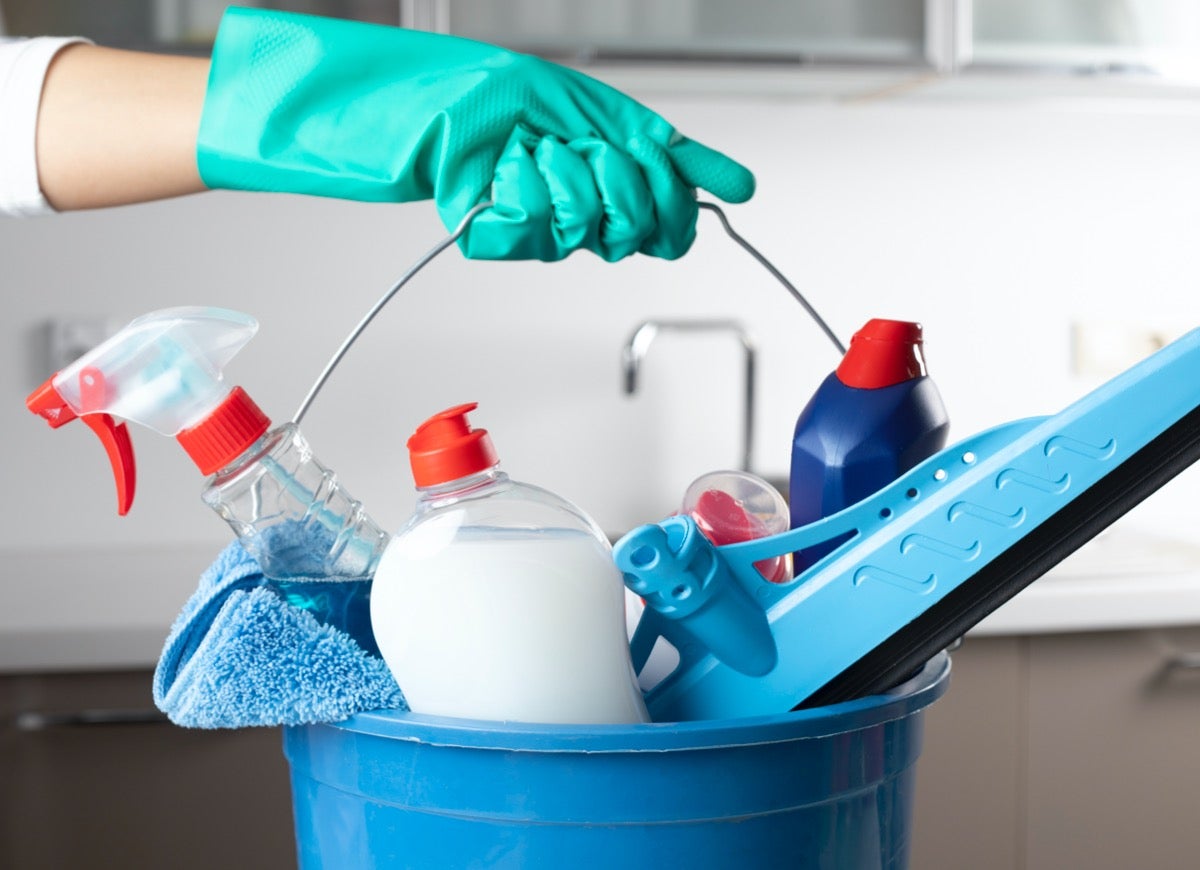
Many households store cleaning products under the kitchen sink, but if you have young children or pets, it would be best to find another home for them. Harsh chemicals—like bleach—can be especially dangerous if ingested by your little ones or furry friends. Consider keeping these products higher up in either your kitchen or bathroom or utility closet where they’re out of reach.
Flammable Products
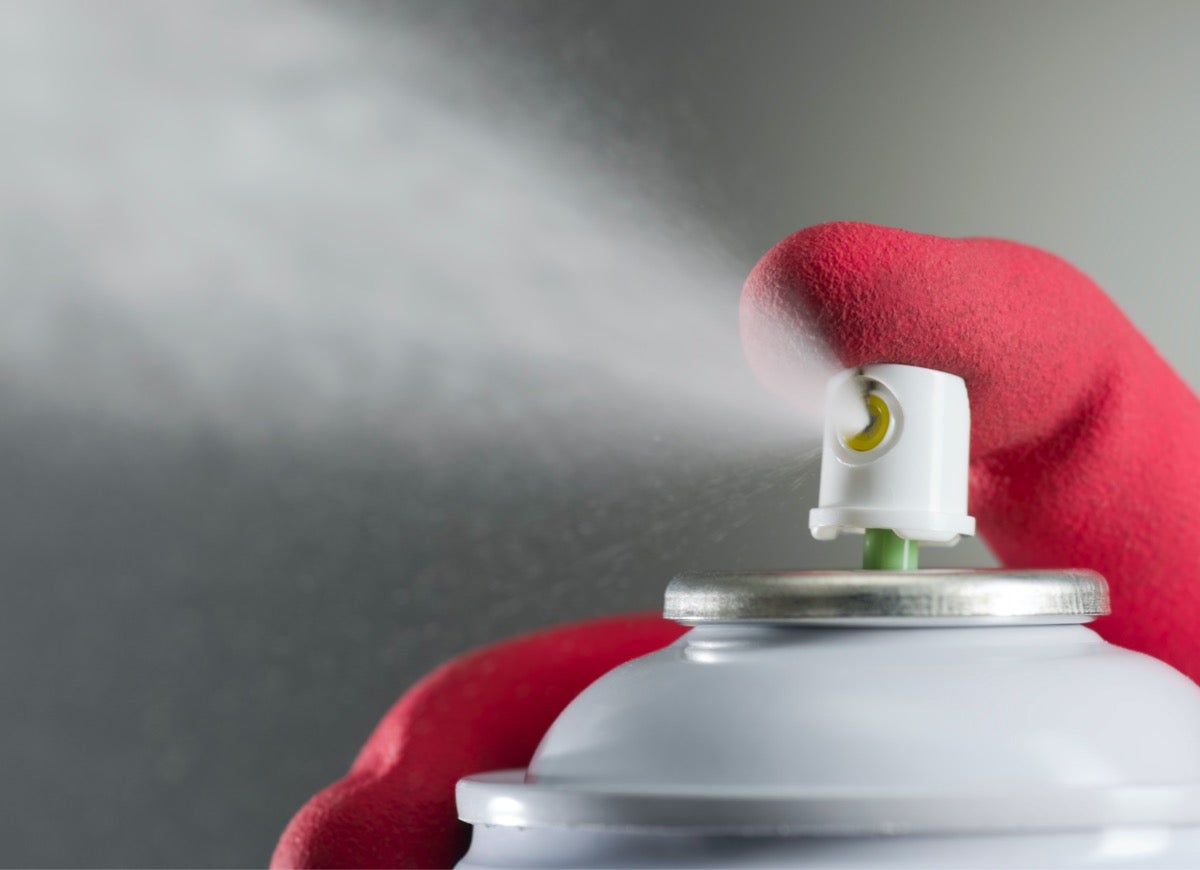
Take note of products that are labeled as “flammable” and be sure to store them outside of your kitchen. Varnishes, rubbing alcohol, aerosols, and other flammable products should be safely kept in a garage or other well-ventilated space. This is especially relevant if you have a garbage disposal or other device that requires electrical components.
Paint
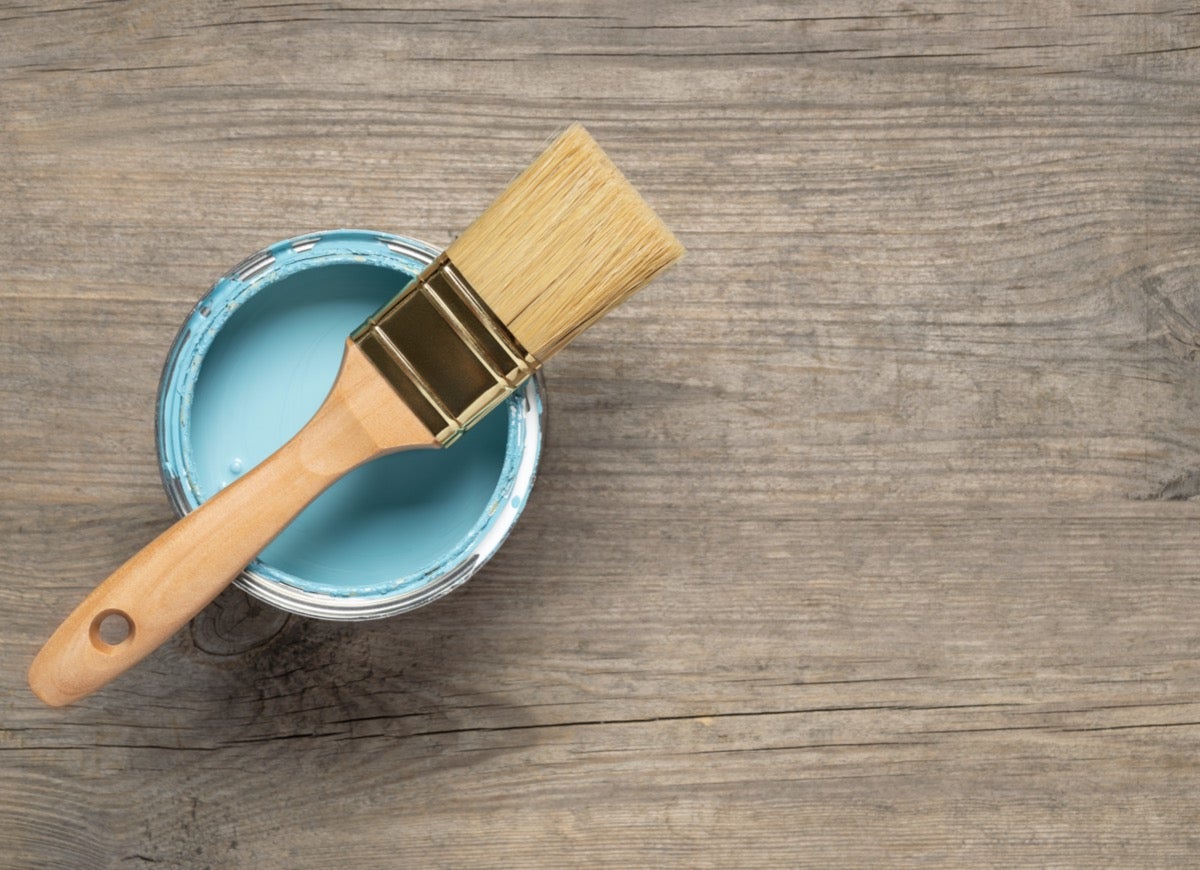
If you’re in the midst of a renovation or DIY project, be sure to store your paint cans and spray paint canisters away from your kitchen. It’s important that they not be stored near gas appliances, so it’s best to keep them in a shed, garage, or other outdoor storage area in order to avoid accidents.
Insecticide
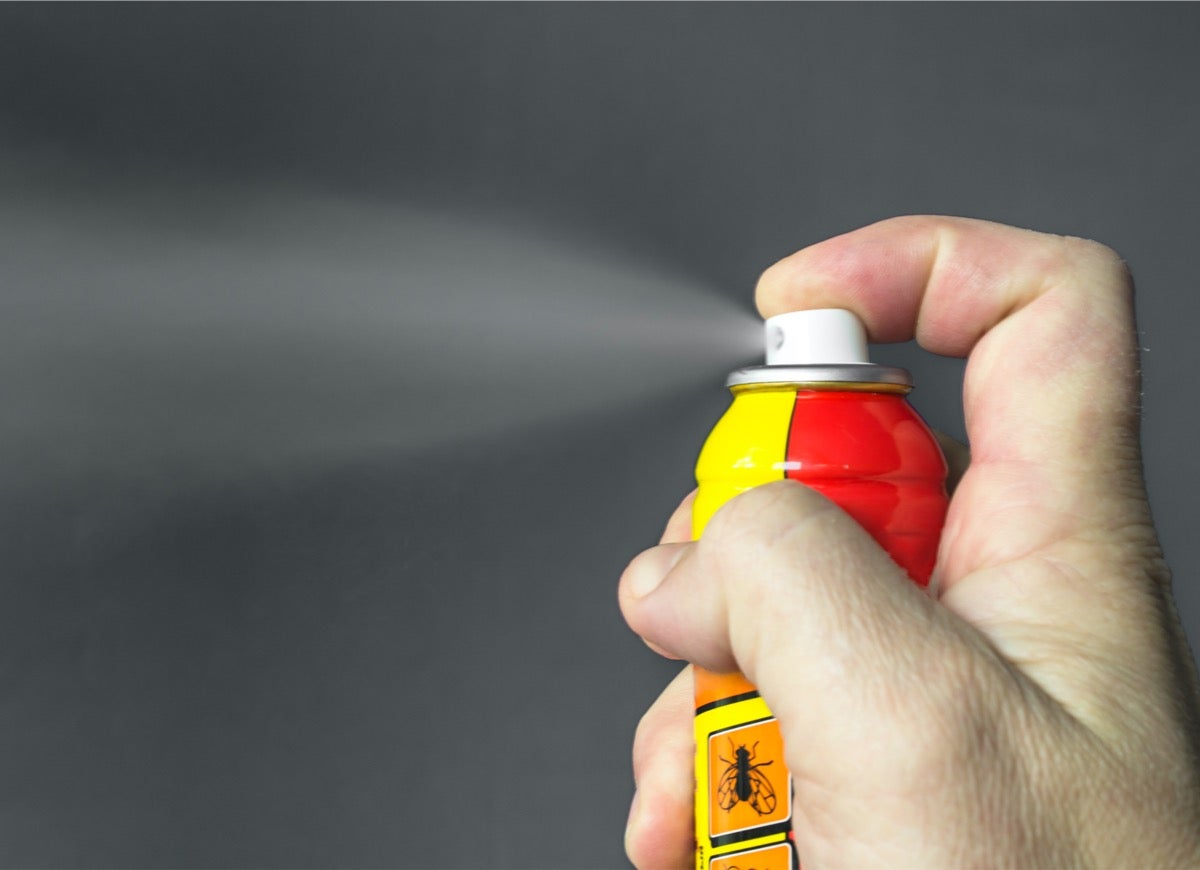
Unwelcome household critters tend to congregate under the sink, so it can seem logical to put insecticides or even rodent poison in this area. Just like with harsh chemicals, however, it’s important to keep these dangerous items away from young children. These are best stored on a high shelf of a garage or storage room where there’s no chance of kids or pets getting their hands—or paws—on them.
Pet Food
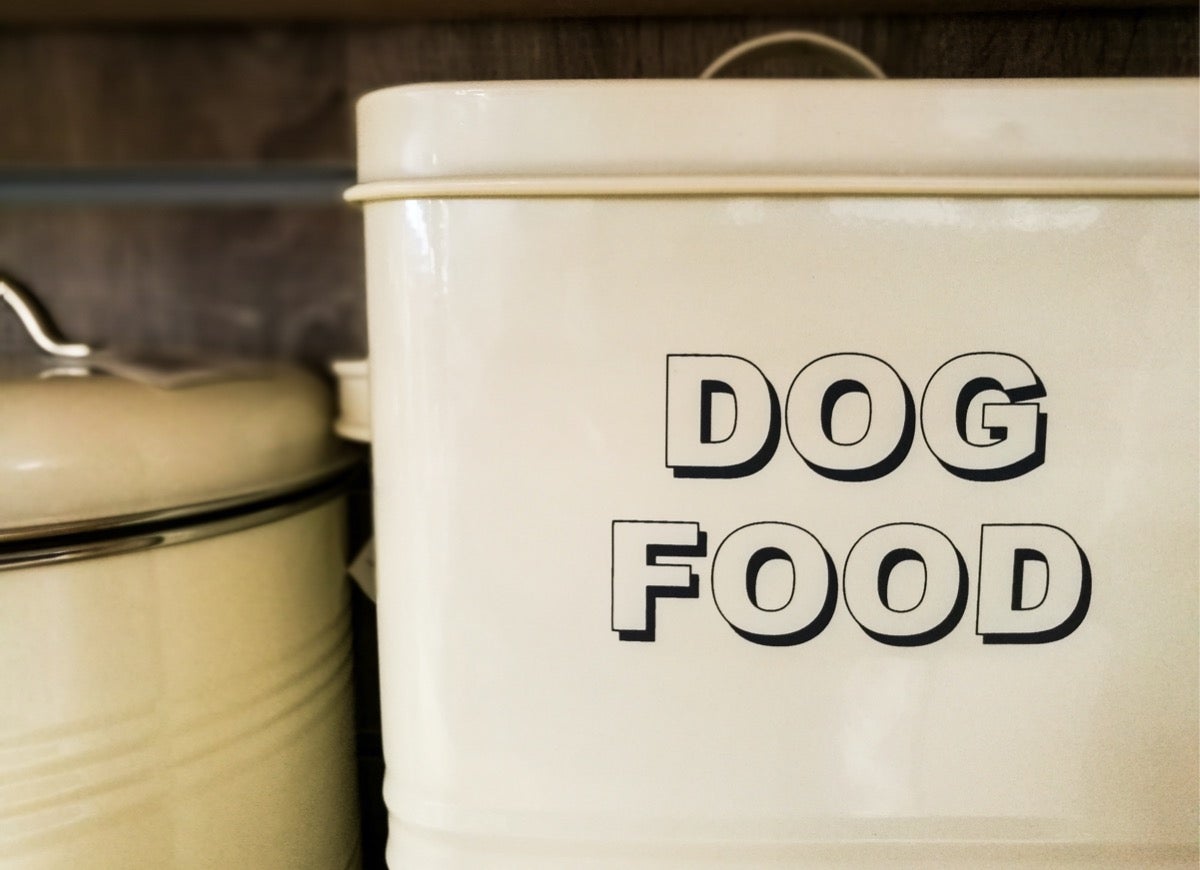
Unless it’s in a tightly sealed container, pet food stored under the sink is at risk of developing mold if it’s exposed to moisture. It’s also important to keep open bags of pet food away from potentially harmful chemicals like those found in cleaning products in order to avoid cross contamination.
Pantry Items
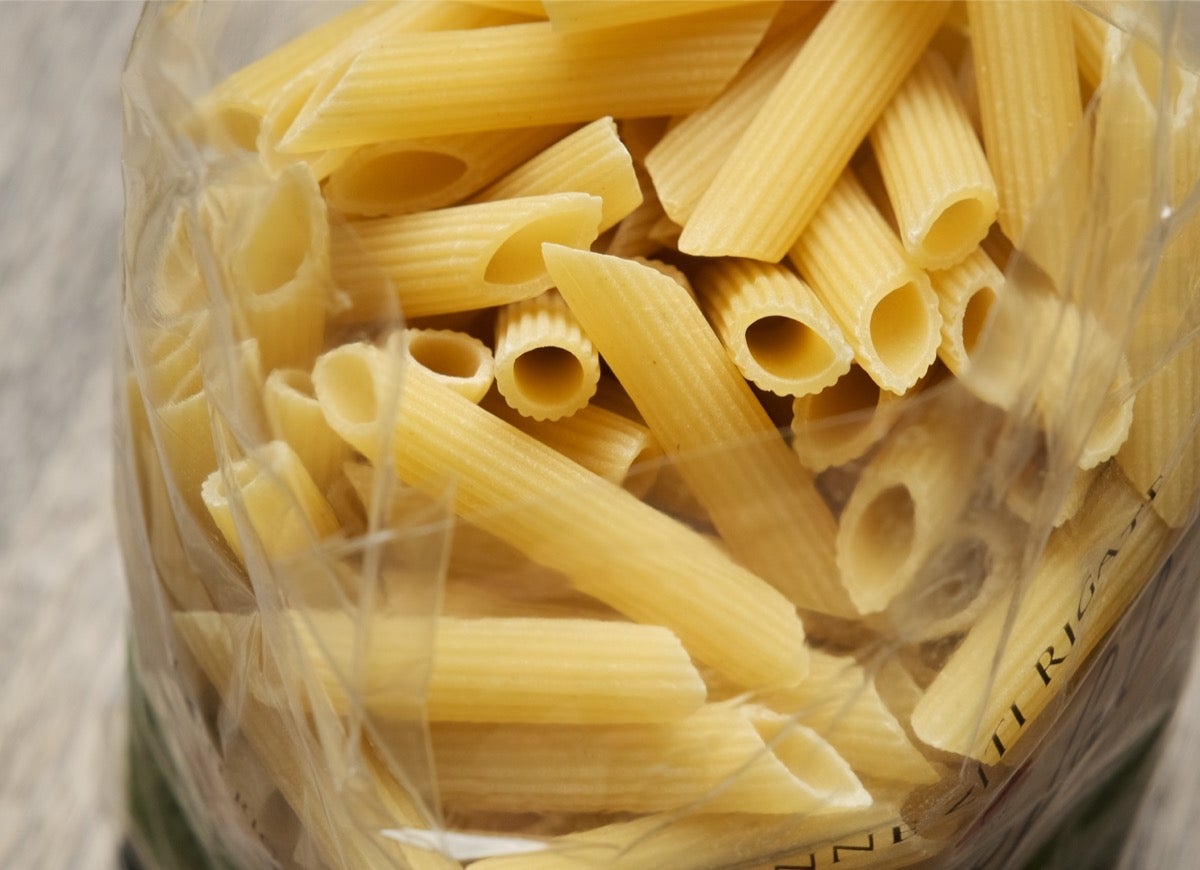
Those with minimal storage space know the struggle of finding room for all the cereal boxes, bags of pasta, and dried spices your family goes through. The area underneath your sink, however, is not the best solution. Even if you don’t use the area to store cleaning products, the moist environment isn’t the ideal spot for storing food of any kind—especially dry goods that would be ruined if they came into contact with water.
Tools
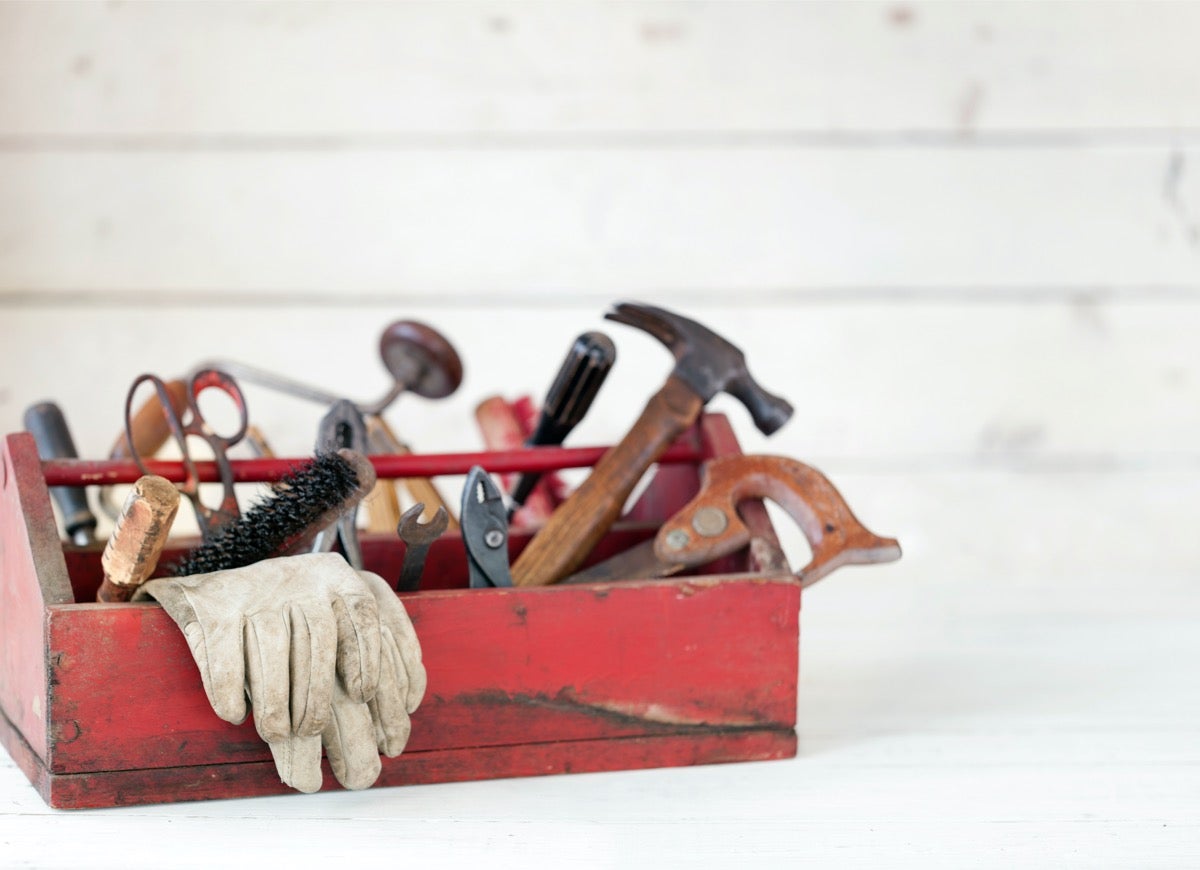
Because the area under the sink tends to be damp even if there aren’t any major leaks, any metal tools won’t fare well there. In order to avoid rusting and corrosion, keep tools and other hardware in a dry space where they won’t come into contact with moisture.
Related: The Best Tools
Light Bulbs
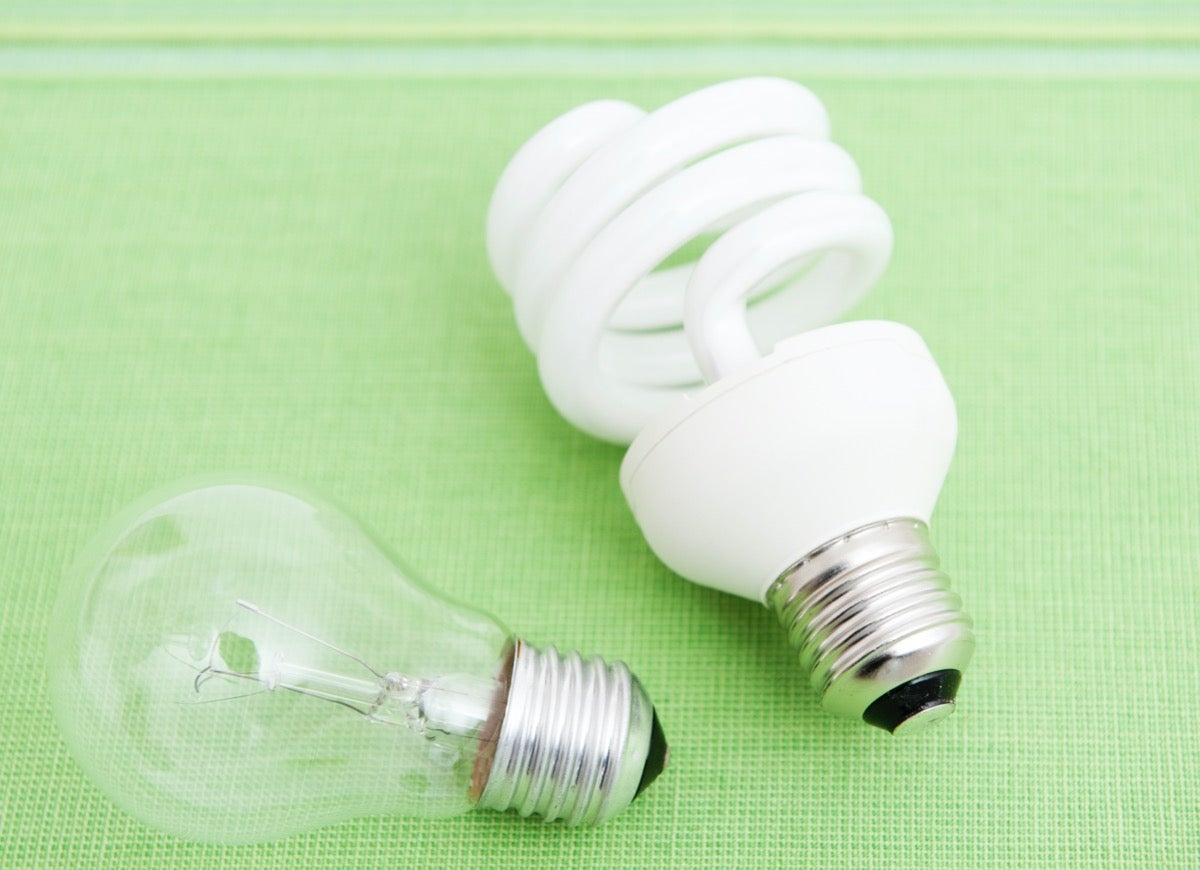
The area under your sink tends to be a high traffic area, especially if you keep a trash can or recycling bin there. Items kept there have the potential to be jostled around. Because they’re made from delicate glass, light bulbs are incredibly fragile, and should be stored somewhere where there’s less risk of them being knocked over, crushed, or smashed.

Everything You Need for a Lush and Healthy Lawn
Keeping your grass green and your plants thriving doesn’t just take a green thumb—it starts with the right tools and supplies.

